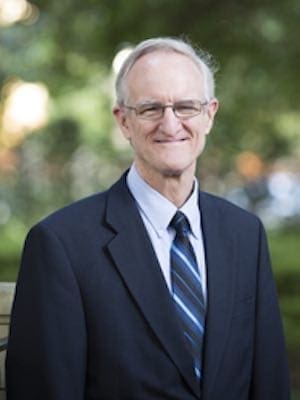It is a typical and familiar story, yet still painful to hear. A church is engulfed in a fundamentalist purge. Those wishing to “purify” the church cry liberalism. Members are accused of not believing in the Bible and are questioned about Jesus’ virgin birth.
In the midst of anger toward fundamentalism, faithfulness and fellowship prevail. A new church is born. The future is still uncertain, but a community center is rented for worship, and lay leadership—wary of deacons and committees—forge ahead. One thing becomes clear: everybody will be involved in planning and decision-making. Congregationalism and the priesthood of believers will be more than mere shibboleths; they will be implemented. The church is instinctively egalitarian. Men, women and children pray, teach and usher. The “administrative team” includes both genders.
Egalitarian, yes; liberal, no. At first the church just called itself, “Traditional Baptist Church.” “We just want to be Baptist the way we always have been,” was the familiar plea. When the church adopted a formal name, the members insisted that “traditional” be kept in the title. Land was purchased at a site, parishioners testified, that was providential.
When The Oaks: A Traditional Baptist Church was two months old, I was called to be the interim pastor (my family were charter members). During my eight months, I was treated to powerfully genuine koinonia. Despair had turned to hope, because faithfulness and trust were a part of their orthodox tradition.
I am most proud of the church’s decision to have two “deacon-servants.” Note the name. The idea of deacons conjured up bad memories, but of course the ministry of deacons was biblical. So as not to “throw the baby out with the bath water,” the church chose “deacon-servants” to recover the biblical notion of the deacon. And they decided that the ministry of spiritual service was not gender-based. The traditional Baptists were not being very traditional. Or were they? History records that the earliest Baptists had deacons of both genders. More importantly, this new church read their Bibles and knew that Phoebe wasn’t the name of a male.
The congregation elected two deacon-servants. One was a man previously ordained and recognized for his wisdom and leadership. The other was a woman.
In the churches where I have served as pastor (or interim), without fail a “matriarch” serves as a spiritual backbone of the congregation. A devout life and quiet, humble, sacrificial service are the usual characteristics. If anyone ever deserved to be a deacon-servant, any member of The Oaks agreed, it was “Mrs. Eugenia.” She is one of those rare Spirit-gifted “pray-ers,” believers you love to hear pray because you feel the presence of God so vividly.
What is most powerful about the testimony of Mrs. Eugenia’s life is her commitment of servant-love to her former husband, Ben Jack. At Mrs. Eugenia’s invitation, he became involved again in church after the new congregation was formed.
Unfortunately, not long after coming to the church, Ben Jack was diagnosed with terminal cancer. Despite her own health problems, Mrs. Eugenia cares for Ben Jack indefatigably. Each Sunday Ben Jack (in physical pain) still sits next to Mrs. Eugenia in worship, and the whole congregation receives the blessing. Reconciled friendship, agape love and trust in God amid difficult times are their weekly sermons.
As a Baptist historian, I have spent some time writing local church histories. The unnamed laity are no less a part of the great cloud of witnesses; grassroots Christianity is the most basic expression of the faith. Mrs. Eugenia McDilda is a Baptist saint.
The Oaks: A Traditional Baptist Church (Lyons, Ga.) observes its one-year anniversary Aug. 10. While I have finished by interim work because of a move to Baylor University, I will remember the faithfulness of these traditional Baptists. They affirm the best of the Baptist tradition, but reveal openness to the Spirit of God.
Doug Weaver teaches at Baylor University. He formerly taught at Brewton-Parker College in Mt. Vernon, Ga.

